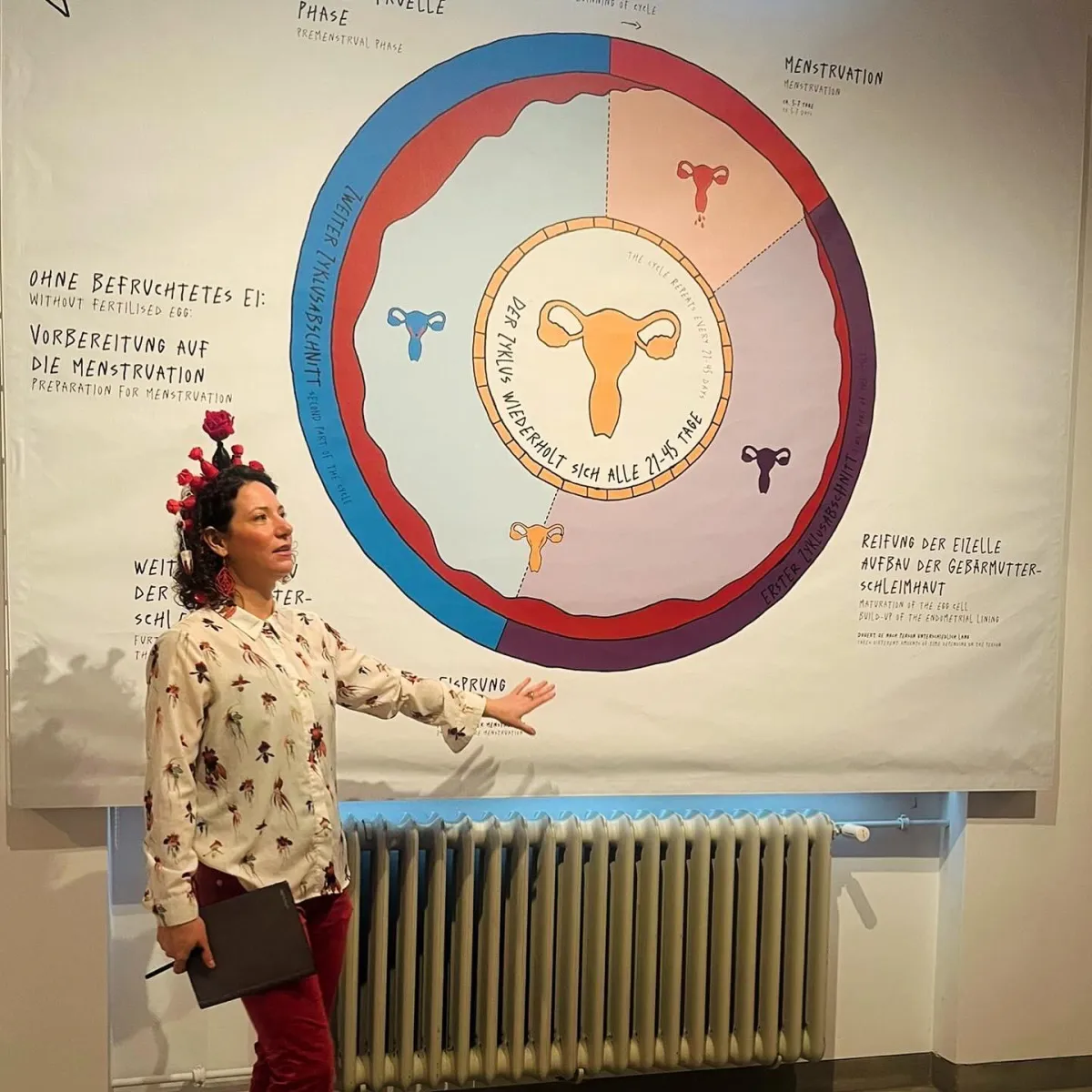
Cycle Awareness Beyond the '4 Seasons'
For 12 years now, I’ve watched the menstrual health space evolve....
What once started as grassroots activism and deep wisdom-sharing has now become the latest trend for influencers and self-proclaimed “experts” to hop on, branding themselves as cycle-syncing gurus. Their promise is a perfectly harmonized life, wrapped neatly in the metaphor of four seasons: winter, spring, summer, and autumn.
I get it - the idea is beautiful.
But the problem is, it’s also deeply rooted in a Western, white-centric perspective that fails to speak to the lived realities of most people around the world.
The 'Inner Seasons' approach was popularized by Red School, a menstrual coaching framework created by two white women. Their intention, I believe, was genuine: to simplify the cyclical nature of menstrual health into something more tangible and accessible.
But what about those of us who do not live in temperate climates with four distinct seasons?
Newsflash: The majority of the global population lives closer to the equator, where seasonal shifts are not so neatly divided. So, when we frame menstrual cycles through the lens of winter, spring, summer, and autumn, whose realities are we really centering?
Let’s call it what it is: it’s an inherently ethnocentric framework that unintentionally excludes millions of people.
And worse, when someone’s experience of their cycle doesn’t fit neatly into this seasonal metaphor, the implication is that they are somehow doing it wrong, or that their body is “out of sync.”
Sound familiar? It’s just another version of the prescriptive narratives that patriarchy and the medical establishment have been forcing onto women for centuries.
It’s the same gaslighting in a different outfit.
Decolonizing the Western Narrative
The menstrual cycle is not just a product of hormone fluctuations; it’s also deeply impacted by trauma, socio-economic inequality, and systemic oppression. Women of color, for example, are statistically more likely to experience higher rates of reproductive health issues. Black women in the United States are three times more likely to die from pregnancy-related complications than their white counterparts.
Indigenous women face barriers to accessing basic menstrual health products and reproductive care.
So when we frame menstrual cycle awareness as this idyllic seasonal rhythm, we erase the real, intersectional struggles many face in simply navigating their bodies day to day.
Decolonizing this narrative means stepping away from the assumption that one metaphor fits all. It means acknowledging that menstrual cycles are more so about the two phases of expansion and contraction, as marked by menstruation and ovulation, and influenced by far more than the position of the Earth in relation to the sun.
Cycles are shaped by lived experience, trauma, access to resources, and the daily navigation of oppressive systems. The four seasons metaphor, in its simplicity, cannot hold the fullness of this reality.
Why This Matters
When we oversimplify the menstrual experience, we risk gaslighting people into believing that if they aren’t feeling “springy” during their follicular phase or “restful” during menstruation, they must be out of balance.
What if their bodies are responding to something deeper?
What if chronic stress, financial insecurity, or generational trauma are at play? When we only offer the seasonal metaphor, we dismiss these critical layers and further perpetuate the myth that menstrual health is a one-size-fits-all experience.
We have to do better.
We have to move towards a more inclusive, intersectional understanding of cycle-syncing—one that honors not just biological rhythms but the realities of living in an unjust world. This means talking about how nutrition, stress, racism, and even environmental factors influence hormonal balance.
It means acknowledging that the menstrual cycle is not isolated from the world we live in; it’s deeply affected by it.
My Call to Action
If we are serious about menstrual equity and true bodily autonomy, we need to decolonize the cycle-syncing narrative Shifting the conversation away from overly simplistic metaphors and toward a real understanding of hormones, their cyclical nature, the 5 different phases - not 4 - and how they are impacted by the world around us.
We should be talking about what’s possible for each unique individual, honoring their experience without imposing a metaphor that doesn’t fit.
It's also time get truthful about the impact of trauma, systemic oppression, and inequality on our cycles—because ignoring these realities is a form of gaslighting.
Cycles are about expansion and contraction, not fitting into someone else’s framework.
I invite you to reclaim the narrative - one that is inclusive for all and grounded in the beauty of individuality.
Want to work with me?
Let's set up a time to get to know each other!
